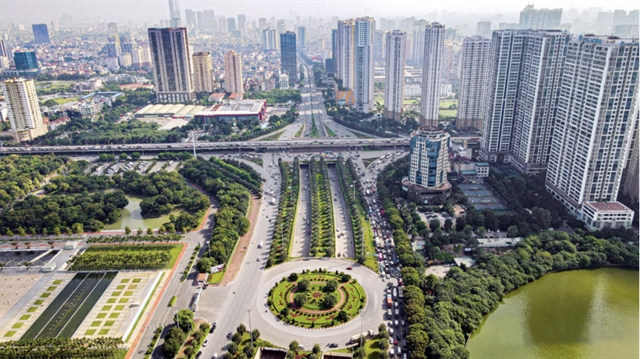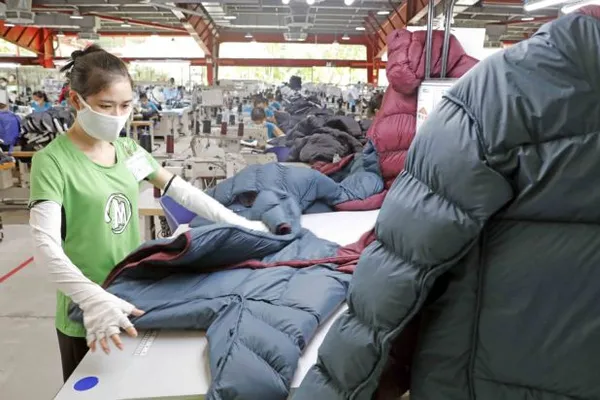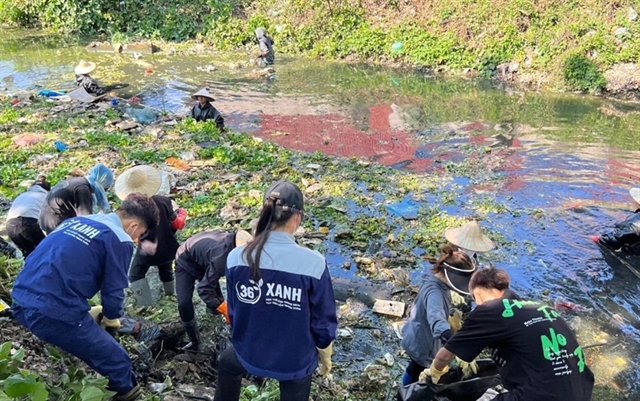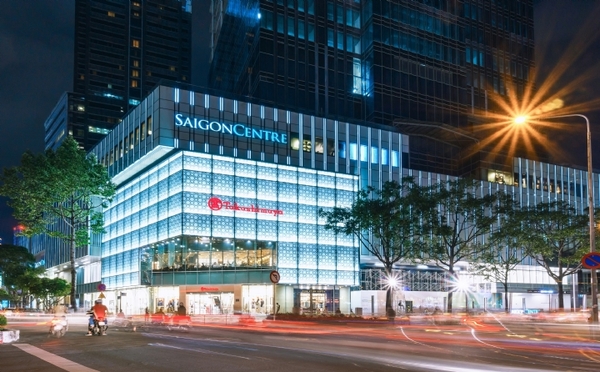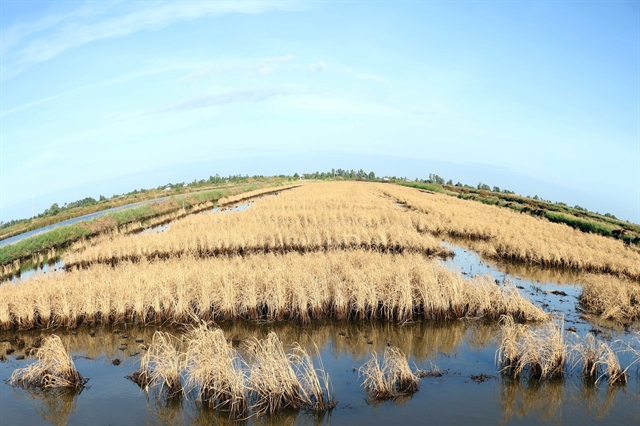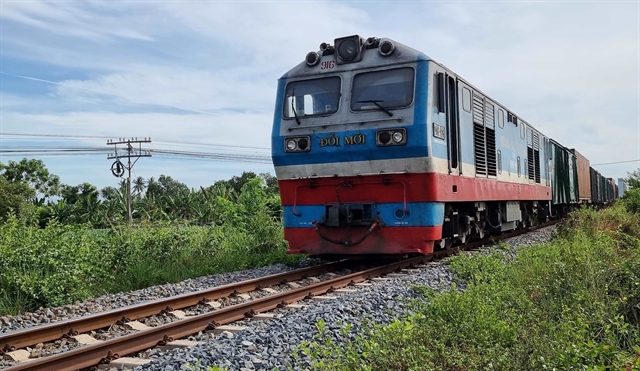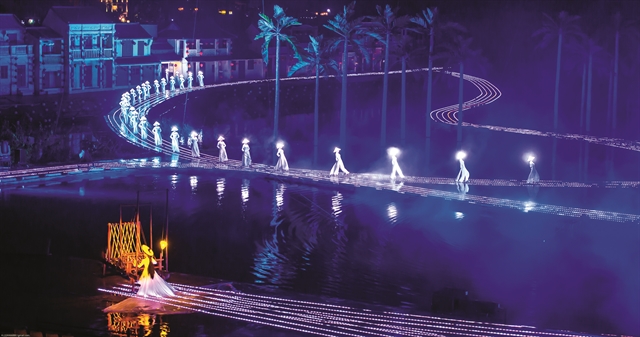 Life & Style
Life & Style

The “Blue Silk of Việt Nam,” as the central province of Khánh Hoà is sometimes referred to, lives up to this description effortlessly, with its sparkling beaches.
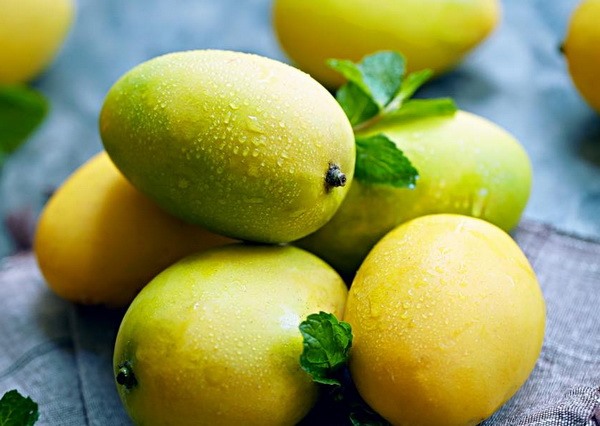 |
| Nature’s bounty: Mango from Nha Trang is very suitable for making tasty and delicous bánh tráng xoài. — Photos dulichnhatrang.com |
By Hà Nguyễn
NHA TRANG — The “Blue Silk of Việt Nam,” as the central province of Khánh Hoà is sometimes referred to, lives up to this description effortlessly, with its sparkling beaches.
As a coastal hotspot, it has also gained a well-deserved reputation for its seafood, but it has less well-known specialties that people tend to miss. And if they do, they have really missed something.
Bánh tráng xoài
When a friend gave Trần Lệ Tĩnh a package of bánh tráng xoài (mango fruit leather) from Nha Trang, she was thankful, but not very impressed. She’d never had this cake before she migrated to Scandinavia, and it looked a bit too thick for her taste.
And when her friend told her that this was an excellent cake, Tĩnh was sceptical. It looked like an ordinary cake.
“My friend pushed me to try it, insisting I would feel like having it again and again..
“I cut the cake into small pieces and put one in my mouth. My friend was not wrong at all. The fragrance of ripe mango and the sweet and sour taste was surprisingly good. I definitely wanted more of it.”
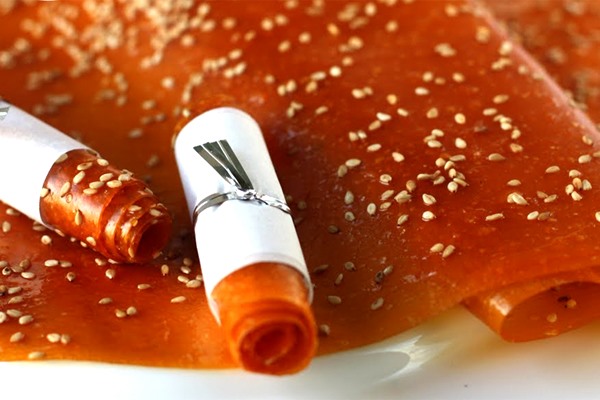 |
| Light treat: Mango cake is fresh and not too filling. |
Nha Trang resident Nguyễn Thị Liên, who has been making the cake for nearly 50 years, said she buys mangoes from Cam Lâm District, the province’s granary for this tropical fruit.
“To make the cake really tasty, I sign contracts with orchard owners so I can get fruits that ripen on the tree. They are the best, but not easy to get,” said Liên.
She said she employs two people to help her make the cake. The fruits are cleaned, peeled and the flesh scraped off the seeds. This is then mixed with sugar and tapioca starch, boiled and let cool before drying it in sunlight for two days till it gets soft and crispy. To make one kilo of this cake, 8-10kg of mangoes are needed.
“The process itself is not so difficult, but how its done is very important. The liquid mango has to be stirred regularly for a long time when it is being boiled so that it does not burn. Patience is key, particularly during the hot summer weather,” said Liên.
People who make this cake in Cam Lâm call it “one fire and two sunlight,” referring to the fire that is used to cook the juice and the sunlight used to dry it.
Bùi Ngọc Lâm, a Cam Lâm resident, said that although she has a company using modern processing equipment to make the cake, handmade ones were still selling well. People like the thick pulp and mango chunks you can get with the handmade cakes, she explained.
“During the mango season, we have to mobilize all my relatives to collect the fruits, clean them and do all the other things,” Lâm said.
So, next time you visit Nha Trang, make sure you don’t miss out on this delectable treat from Cam Lâm. You will end up buying a lot of it to share with family and friends.
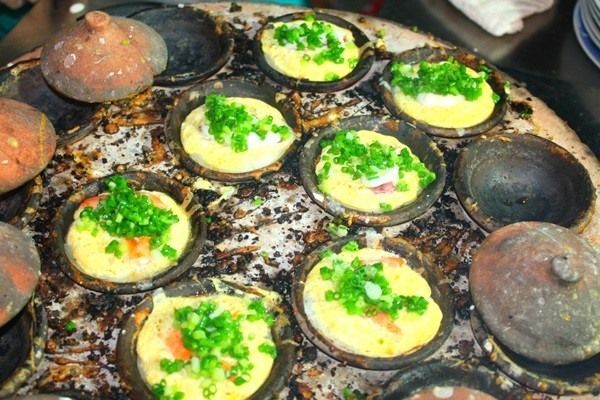 |
| Feast for the senses: Visitors to Nha Trang should try bánh căn (traditional pancake) for its nutty fat, tasty and aromatic fragrance. |
Bánh căn
Unlike the mango cake, this traditional dish is famous, having been featured in most seafood festivals and served everywhere, from street-side stalls to luxury resorts.
Although it is served as a Khánh Hòa specialty, this cake originated in the central province of Ninh Thuận more than a century ago. It was a specialty of the Chăm people.
Giang Thúy Hòa, 65, who has been making and selling the pancake in Nha Trang for many years, said the cake was similar in shape to bánh khọt (fried rice flour cake) in southern provinces, but its recipe was quite different.
Hòa also said that making this cake is not complicated and those interested can do it at home.
The main ingredients of this pancake are wet rice powder and different seafood items, like shrimp or cuttlefish.
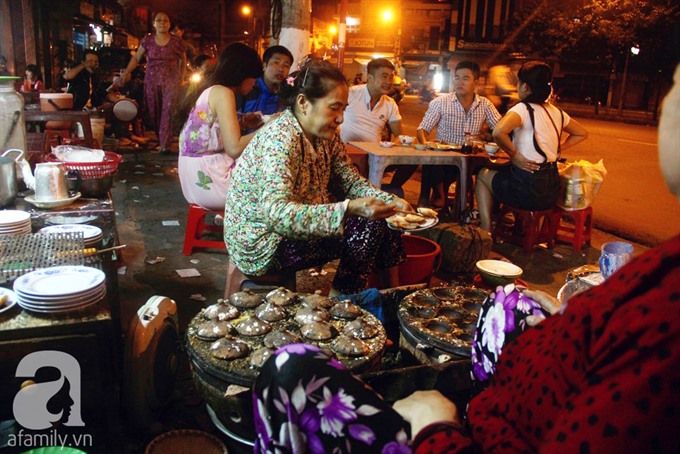 |
| This joint is lit: Crowded customers enjoy bánh căn at a shop in Nha Trang. |
Hòa said she learned the art of making and cooking the cake from her mother since she was six.
“My mother made the cake so skilfully that she could serve many diners at the same time. I liked the way she poured the rice flour into small clay pots placed on a frame, and then added minced shrimp or eggs before covering the pots with lids.”
Because they are small, the cakes are usually sold in pairs, Hòa said.
This pancake is served with lettuce, basil, thinly cut green mango, onion and cucumber.
My friend, Nguyễn Thị Huấn, likes this cake a lot for the fragrance of the rice flour, the crispiness of the seafood, and the light sour taste of the sauce, which is a mix of garlic, chili and several other spices.
She dispensed this piece of useful information: “To have this cake at its best, it should be dipped fully into the sauce before being eaten.” — VNS


